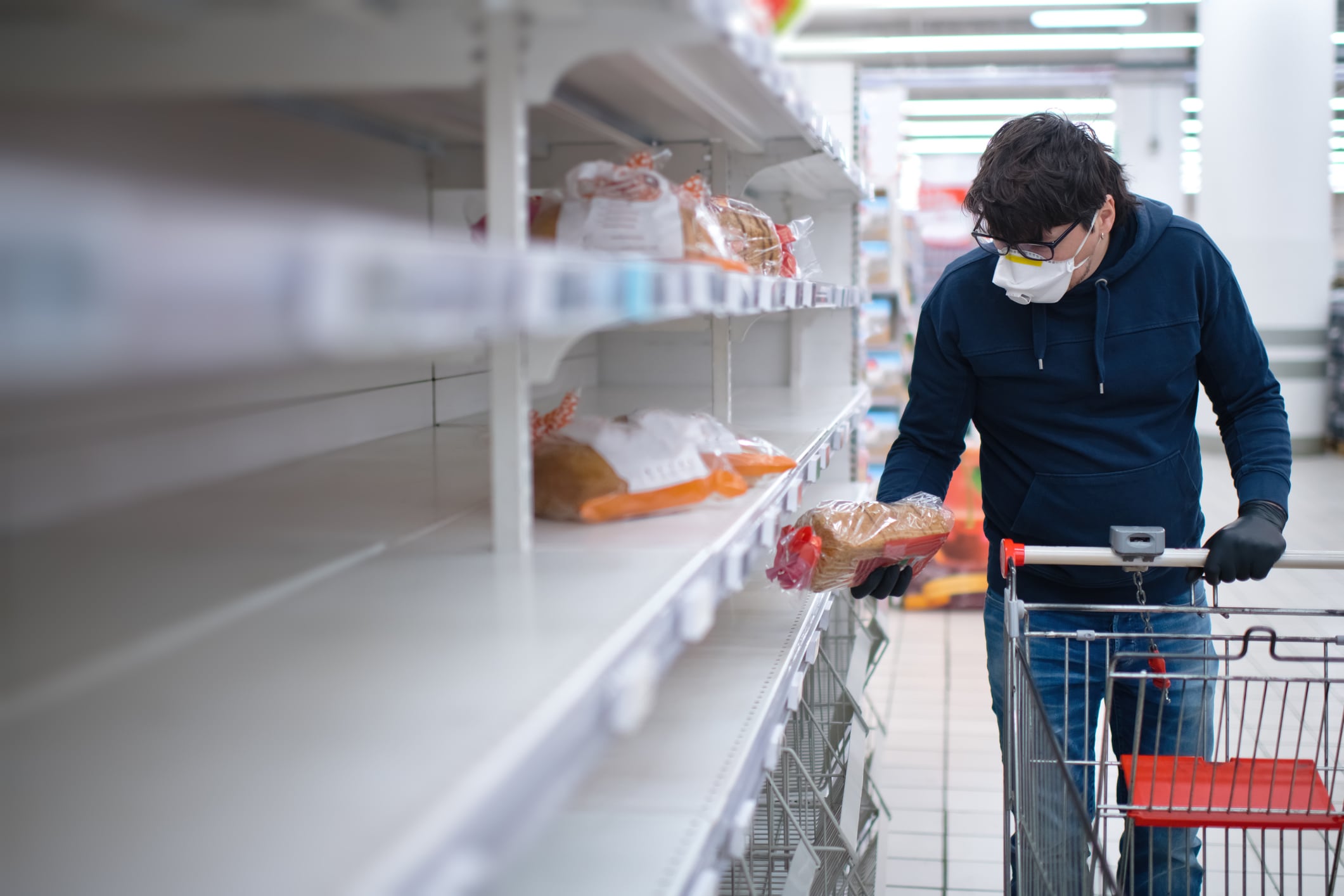In a report led by Professor Tim Lang, Professor Emeritus of Food Policy at City St George’s, University of London, the National Preparedness Commission (NPC) is urging ‘immediate action’ to safeguard the nation’s food supply in the face of mounting global pressures.
The NPC is an independent, non-political body which promotes policies and actions to help the UK to be better equipped against major shocks and threats.
Its new report ‘Just in Case: 7 steps to narrow the UK civil food resilience gap’ suggests that ‘considerable change’ is required to bring UK food policy into a ‘fit state of preparedness’ against threats from climate change, geopolitical instability, and the ongoing repercussions of the Covid pandemic.
It calls for a decisive shift from reactive food policies to proactive, community-centred resilience planning – examining in detail how the British public can be better prepared.
The report draws on lessons from 10 countries to stress the urgency of embedding food resilience into national policy, proposing a strategic reset from just-in-time to just-in-case logistics.
Among 15 key recommendations, the report calls for new legislation to formalise the state’s obligation to feed the public in a time of crisis, alongside a new legally defined UK food policy.
The report also suggests changes to food distribution systems, the introduction of town-to-town food resilience learning exchanges, as well as research into current thinking around stockpiling and rationing.
Over 70 people from organisations across the food industry, government, academia and community groups were interviewed by the authors. In one-to-one interviews, which have been cited and anonymised throughout the report, they were asked to judge risks, fragilities and options, and offer recommendations on how to improve food system resilience and ways to accelerate what the report calls ‘civil food resilience’.
The report measures ‘civil food resilience’ by considering the public’s awareness of risks, ability to reduce unnecessary risks and preparedness to act inclusively with others to ensure all society is well fed during crises.
Commenting, Professor Lang said: “The UK’s post-war food system, while revolutionary in its time, is no longer fit for purpose. To safeguard our future, we must prioritise resilience at every level – from local communities to national frameworks.
“There is a gap between the official risk and resilience framework which presents a picture that all is ok, and the realities that people in senior and frontline roles read differently. There is too much complacency about UK food security and civil food resilience barely features at all in forward planning.
“Food resilience is not just about surviving a crisis but thriving despite it. This report stands apart from current frameworks by taking into account the public’s current attitudes and understanding of food risks, and asking how civil society can be better engaged to ultimately become more resilient.”
Lord Toby Harris, chair of the NPC added: “Food security is a cornerstone of national resilience. This report highlights the urgent need for a coordinated, whole-society approach to ensure that no one in the UK is left vulnerable in the face of future crises.
“The risks to our food systems are more pronounced than ever before. From floods in key farming regions to disruptions in global trade, we are facing a confluence of threats that could undermine our ability to feed ourselves. The recommendations provide a clear path forward, and it is vital that these are considered urgently.”
‘Food businesses are taking a battering’
Responding to the report’s findings, NFU President Tom Bradshaw said the report could not be clearer.
“Food security is absolutely vital to our nation’s resilience, but our current food system is not where it needs to be to withstand future crises,” he noted.
“We have seen our fair share of crises in recent years, from the Covid pandemic to the devastating war in Ukraine, and it was only a couple of years ago when a combination of high production costs here and bad harvests abroad meant the rationing of fresh produce in supermarkets.
“Governments can have short memories, but our ability to feed ourselves should always be a priority.
“Yet as we speak, food producing businesses are taking a battering.”





